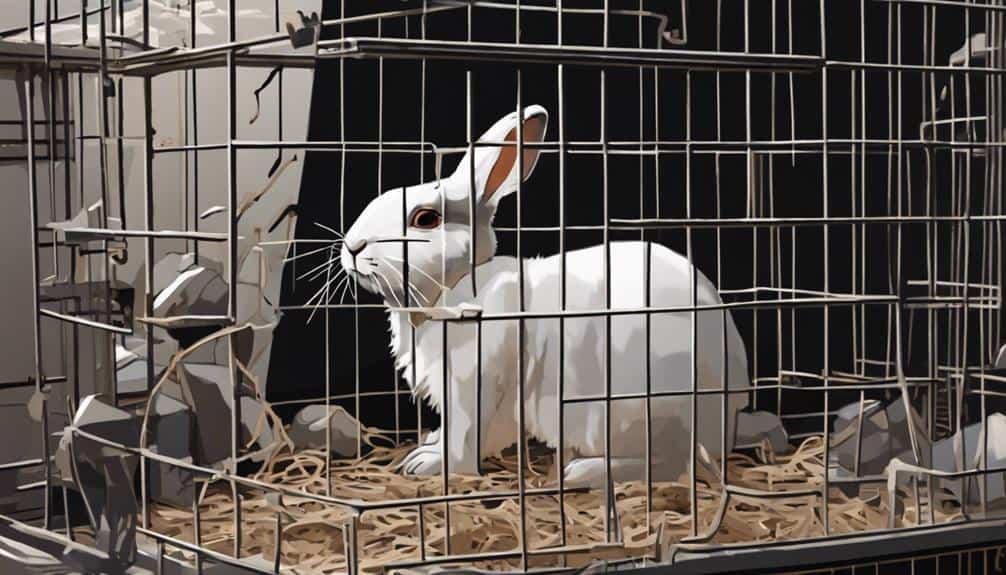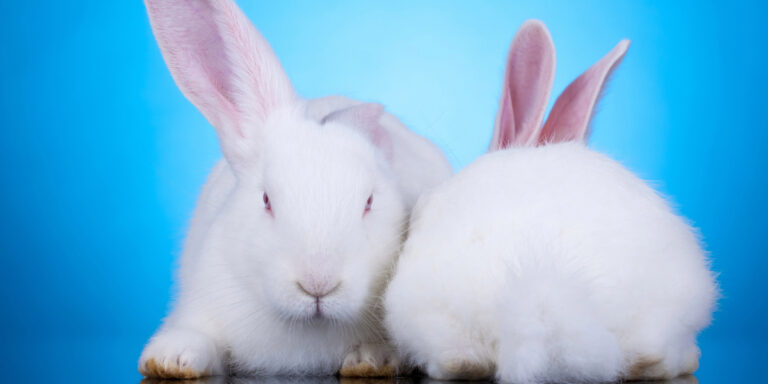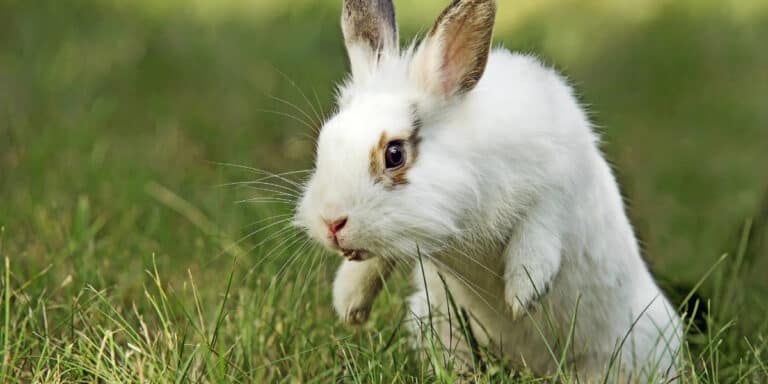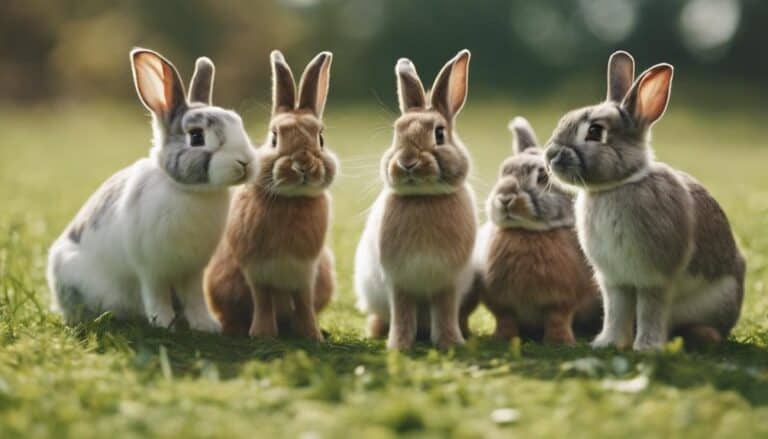When it comes to understanding stress in your pet rabbits, it's like deciphering a silent language. You notice subtle cues that hint at their inner feelings.
But have you ever caught your rabbit showing signs of unease? These creatures can be masters at masking their stress, making it important to decipher these key indicators to guarantee their well-being.
Contents
Key Takeaways
- Changes in eating habits, grooming, and behavior indicate stress in rabbits.
- Alertness, aggression, and fearfulness are common behavioral signs of stress.
- Hiding, appetite changes, and aggression towards others are environmental stress indicators.
- Providing a comfortable environment and addressing signs promptly help alleviate rabbit stress.
Physical Signs of Stress

When observing pet rabbits for signs of stress, pay close attention to their physical behaviors and appearance. Stress in rabbits can manifest in various ways.
Changes in eating habits, such as a sudden decrease in appetite or eating much less, may indicate that your rabbit is stressed. Additionally, aggressive behavior like charging or nipping at you or other animals is a common physical sign of stress in rabbits.
Overgrooming leading to bald patches or having shaggy fur can also be indicators of stress-related issues that your rabbit may be experiencing. Also, if you notice your rabbit engaging in prolonged sitting in one spot without moving much, it could be a physical manifestation of stress.
Observing these physical signs can help you identify when your rabbit is stressed and take appropriate actions to help alleviate their stress levels.
Behavioral Signs of Stress
Behavioral signs of stress in pet rabbits often include alertness and aggressive behavior towards humans or other animals. Rabbits, being prey animals, may exhibit fearful behaviors like running or hiding when stressed. Thumping frequently is a common behavioral sign of stress in rabbits. Additionally, overgrooming or lack of grooming can be indicators of stress in rabbits. Paying attention to any aggressive behavior towards humans or other rabbits is crucial, as this may signal that your pet rabbit is under stress.
When a rabbit is stressed, they might display behaviors that are out of the ordinary for them. Observing changes in their behavior, such as increased alertness, aggressiveness, overgrooming, or avoiding grooming altogether, can help you identify if your rabbit is experiencing stress. By recognizing these common signs of stress in rabbits, you can take steps to address the underlying causes and provide a more comfortable environment for your beloved pet.
Environmental Signs of Stress

Exhibiting environmental signs of stress, pet rabbits may demonstrate behaviors like hiding more frequently than usual. When it comes to recognizing stress in rabbits, paying attention to environmental cues is essential. Here are four key signs to watch for:
- Changes in Appetite: Keep an eye on your rabbit's eating and drinking habits. A reduced appetite could be a red flag for environmental stress.
- Aggression: Increased aggression towards cage mates or even humans can signal that your rabbit is feeling stressed in its environment.
- Overgrooming and Self-Injury: If you notice your rabbit engaging in excessive grooming or self-injury behaviors, it may be a response to environmental stress.
- Chewing: Rabbits that excessively chew on cage bars or objects might be trying to cope with stress in their environment.
Frequently Asked Questions
How Do You Know When a Rabbit Is Stressed?
When a rabbit is stressed, you can tell by observing behavioral changes like hiding or aggression, physical symptoms such as overgrooming, and body language like sitting hunched. Recognizing stress promptly is essential for their health and well-being.
How Do You Know if Your Rabbit Is in Pain and Distress?
To know if your rabbit is in pain and distress, observe physical symptoms like teeth grinding, hunching, and refusal of food. Watch for behavioral changes such as increased aggression, avoidance of interaction, or vocal cues indicating distress.
How Do You Tell if a Bunny Is Happy or Scared?
To tell if a bunny is happy or scared, notice their playful binkies, relaxed body language, and curious exploration. Happy rabbits show alert ears, content grooming, and trust in interactions. They enjoy enthusiastic eating and peaceful napping.
Why Is Stress Bad for Rabbits?
Stress is detrimental to rabbits because it triggers the release of stress hormones, affecting their physical health, triggering behavioral changes, disrupting gut motility, weakening the immune system, impacting social interactions, and mental well-being. Environmental factors, handling techniques, bonding activities all play a role.
What are the 3 key signs of stress in pet rabbits that I should be looking out for?
When caring for pet rabbits, it’s important to be aware of the common stress signs rabbits may exhibit. Watch out for decreased appetite, excessive hiding, and aggressive behavior. These signs can indicate that your rabbit is experiencing stress and may require attention from a veterinarian.
Conclusion
To sum up, remember to closely observe your pet rabbit for signs of stress such as lethargy, hiding, and aggressive behaviors. These key indicators can help you address any underlying issues and guarantee your rabbit's well-being.
By staying vigilant and seeking help from a veterinarian when needed, you can provide a safe and happy environment for your furry friend. Keep an eye out for these signs and keep your rabbit hopping happily!






